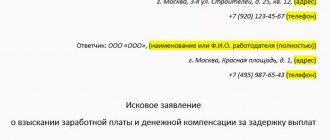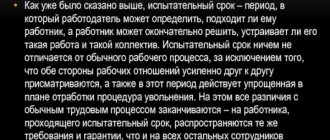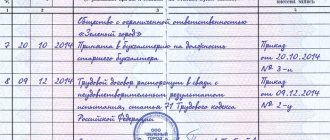A probationary period in an employment contract is introduced in order to test the applicant for long-term cooperation. Is he suitable for a certain position or not? The test is fixed in an agreement with the applicant. Its implementation is the right, but not the obligation of the entrepreneur. In the absence of a clause on the presence of a mandatory test, the employee is automatically hired after signing an agreement with the employer.
How is a probationary period arranged?
The scheme when you are offered to enter into an employment contract after a probationary period is common, but illegal. This way, the employer makes his life easier: there is no need to fill out paperwork, and you can be kicked out any day and without payment.
According to the rules of the Labor Code of the Russian Federation, Article 67. Form of an employment contract, an employment contract is concluded within three days from the moment the employee is admitted to work, and the presence of a probationary period does not affect this in any way. But if it exists, it is written down in the document. This is usually done in the following formulations: “In order to verify the Employee’s suitability for the assigned work, a probationary period is established: __ months.”
If this is not specified in any way, there is no probationary period. Installing it is the right, not the obligation of the employer.
How are the test results presented?
The test results are presented as follows:
1. If, after the expiration of the test period, the employee has not received negative feedback on his work activities, it is considered that he has successfully completed the control period. A separate order or instruction regarding such results is usually not issued.
2. If the employer is not satisfied with the labor success of the subject, then the employee must be notified of such an opinion in writing. The message about the results of the probationary period must contain the reasons on the basis of which the conclusion was made about unsuitability for the given position.
The option in which a candidate is denied the desired job entails some difficulties for the employer. If the reasons in the notice are not sufficiently substantiated, the employee can file a claim in court and appeal the employer’s decision. Therefore, the management of the enterprise must carefully select documentary evidence of the candidate’s insolvency. For example, reports from the subject’s immediate superiors, results of internal audits and investigations, written complaints from clients, explanatory notes from employees regarding violations, etc. will be useful.
There are certain regulations for notifying about the decision made. Thus, the employee must be given written notice no later than 3 days before the date of dismissal. The date on which dismissal is scheduled must be within the probationary period. If the subject refuses to accept the notification, the enterprise draws up a special report indicating the incident.
The employer is allowed to dismiss the subject at any time during the probationary period. This action has some negative consequences.
- firstly, the right to severance pay is lost, if it was provided for by the collective agreement.
- secondly, the trade union organization will not be able to prevent the dismissal, since such circumstances are beyond its competence.
In order to correctly record an entry in the work book upon termination of probation at the initiative of the employer, one should be guided by the provisions of clause 18 of the Decree of the Government of the Russian Federation of April 16, 2003 No. 225 “On work books.” It says here that in this entry you should refer to Art. 71 Labor Code of the Russian Federation.
Download a sample entry form here:
But there are no obstacles to dismissing an employee at his own request during the probationary period, and he has the right to quit at any time. However, he must inform about his intention to terminate his employment relationship with the employer no later than 3 days before his intended departure.
ConsultantPlus experts explained in detail what risks violations lead to when dismissing an employee at his own request during the probationary period. To do everything correctly, get trial access to the system and go to the Ready solution. It's free.
How long does the probationary period last?
By default, the probationary period cannot exceed three months. For managers and their deputies, chief accountants and their deputies, as well as heads of structural divisions, it can last up to six months (and if there is a separate law for this, then even more). If the employment contract is concluded for a period of up to six months, testing the employee is allowed for no longer than two weeks. There is no minimum threshold.
If an employee is absent from work due to illness or other valid reasons, the probationary period is increased by this period.
Test Clause
A probationary period can be added to an employment contract by adding clauses to the “Subject of the contract” section:
- An employee (full name, passport details) is hired at (name of organization) for a position (specify position) for an indefinite period (or for a specific period, for example, from 01/01/2021 to 12/31/2021).
- The employee begins work on January 1, 2021.
- This agreement assigns the employee a probationary period of 3 (three) calendar months (or 6 months for certain categories).
After successfully passing the aptitude test, there is no need to issue a separate order. In the work book, in turn, the entry is made without a reservation about the existence of a test. Date of admission - day of admission to work.
How is work paid during the probationary period?
Job descriptions often indicate a low salary and promise to increase it after a probationary period. This is so common that it seems logical and obvious: the employer is just getting to know the person and does not want to pay him in full.
But this is illegal. The Labor Code prohibits the Labor Code of the Russian Federation Article 132. Payment for labor discrimination in determining wages. For example, in Nizhny Novgorod, the prosecutor's office fined a joint stock company for discrimination against employees and brought the company to administrative responsibility for the fact that employees on a probationary period received 30% less than colleagues in similar positions. The department considered that the employer should have paid equal pay for equal work. And this is far from the only case.
For whom there is no probationary period?
Before placing an employee on a probationary period , the employer must make sure that the candidate is not included in a preferential category for which such a trial cannot be established. The list of released persons is given in Art. 70 of the Labor Code of the Russian Federation, it includes:
- candidates who were promoted to positions as a result of winning a competition;
- pregnant women;
- women raising children under 1.5 years of age;
- candidates under 18 years of age;
- persons who have graduated from secondary vocational educational institutions or universities, if they are entering work for the first time after receiving an education document;
- persons who were elected to office as a result of elections;
- persons who came to the position by transfer from other enterprises;
- employees who have entered into employment agreements for a period of up to 2 months;
- persons released from probation for other reasons.
What to do if you do not agree with dismissal during the probationary period
If you fail to fulfill your responsibilities, the employer may terminate the employment contract. He must report this at least three days before dismissal in writing and indicating the reasons. There is no severance pay provided, but days of work must be paid.
The Labor Code does not define in any way the reasons why you may be fired during the probationary period. The employer himself assesses whether the employee has coped with his responsibilities. However, this does not mean that you should agree if his explanations seem far-fetched. You need to go to court within a month of the Labor Code of the Russian Federation Article 392. Time limits for applying to court for resolution of an individual labor dispute from the date of dismissal, and the employer will have to prove that you worked poorly.
You, for your part, can find evidence of good work and, also an option, violations on the part of the company. For example, if you were told about your dismissal on the last day of your probationary period, this is a violation.
If the court sides with you, you will be reinstated or your employment record will be changed to “dismissed at your own request” - as you wish.
Mistakes made by employers when applying for a probationary period
The employee disputes the unsuccessful test in court.
If the court finds errors, the employee will be reinstated or the wording in the work book will be changed to an entry of his own free will. The employer will be required to compensate wages and moral damages.
It turns out that due to mistakes, the entrepreneur is obliged to hire an incompetent person.
Article: employer's responsibility to employee
Dismissed people sue quite often. Therefore, employers' mistakes are known. Let's talk about them using examples from court cases.
Fired after expiration of probation period
You cannot say on the last day of the probationary period: “You are not suitable for us.” The employee is given three days' notice of dismissal.
The beauty salon administrator was fired on the last day of the test. It turned out that she did not always bounce checks for clients. The employer thought that days off would count toward the deadline, but no. The administrator got his job back.
Case No. 33-10467/2017
The probationary period was not included in the employment contract
The lawyer was fired during the probationary period. He could not cope with the overlapping court hearings and ignored meetings.
In court it turned out that the employment contract with the lawyer was not signed. He worked under the order of admission - and they set up a test in him. But without an entry in the employment contract, there is no probationary period. The lawyer was reinstated.
Case No. 33-43726/2015
The employee was not familiarized with job responsibilities
The accountant did not pass the probationary period. The management did not like the fact that she calculated salaries with errors, was late with reports and did not know how to work with the 1C program.
In court, the accountant said that her responsibilities were not explained to her.
The court reinstated the woman at work, explaining the following. Each responsibility is explained to the employee. The job description is presented upon signature. And the employer must teach skills to work in 1C (!).
Case No. 33-7794/2015
The employer did not explain what was wrong with the employee’s professional suitability
When dismissing an employee, they explain in writing what he did wrong.
A construction worker was fired because his colleagues complained about him. The court said: “What does the professional qualities of the employee have to do with it?” There was no evidence of poor performance by the employer. The employee was returned.
Case No. 33-632/2013
A test was assigned to an employee who should not be tested
A fifth-year student was hired to work as an ecologist with a probationary period. A month later she graduated and became a young specialist. Such workers are not checked.
Something went wrong and the employee failed the test. The court reinstated her at work because the probationary period had become illegal.
Case No. 33-11672/2016
Is it possible to set a probationary period for a new employee?
A test for a new employee is necessary to assess his business qualities and check his suitability for the work performed. The legislator determines the rules for setting and summing up the deadline in Art. 70, 71 Labor Code of the Russian Federation.
The fact that the test was installed is an additional condition of the employment agreement. If the parties have agreed on it, the employer includes the information in the text of the contract. If there is no condition in the text of the contract, the person begins work without conditions.
The exception is when the employee has actually started work and the employment agreement has not yet been drawn up. With this option, the employer has the right to provide for probation provisions in the employment agreement only if the parties have reached an agreement and formalized it in writing in the form of a separate document before the start of work (Part 2 of Article 67 of the Labor Code of the Russian Federation).
To register, a number of conditions must be met:
- Before starting work, arrange an appointment with a test;
- formalize the agreement in a separate written document.
When establishing a test, the employer:
- checks whether the applicant has any inhibitions;
- determines the deadline;
- documents the fact of determining the test.
Employment contract with probationary period
Employment contract with probationary period No.
g.
"" g.
in a person acting on the basis of, hereinafter referred to as "
Employer
", on the one hand, and a citizen, passport (series, number, issued), residing at the address, hereinafter referred to as "
Employee
", on the other hand, hereinafter referred to as "
Parties"
", have entered into this agreement, hereinafter referred to as the "Agreement", as follows:
SUBJECT OF THE EMPLOYMENT CONTRACT. GENERAL PROVISIONS
1.1. The employee is hired. Under this employment contract, the employer undertakes to provide the employee with work according to the specified labor function, to ensure working conditions provided for by labor legislation and other regulatory legal acts containing labor law norms, a collective agreement (if concluded), agreements, local regulations and this agreement, pay the employee wages in a timely manner and in full, and the employee undertakes to personally perform the labor function determined by this agreement and comply with the internal labor regulations in force for this employer.
1.2. This employment contract is concluded: from "" year to "" year. The expiration date of this agreement is: . Circumstances (reasons) that served as the basis for concluding a fixed-term employment contract -.
1.3. Employment test. The employee is given a probationary period - . During the probationary period, the employee is subject to the provisions of labor legislation and other regulatory legal acts containing labor law norms, collective agreements, agreements, and local regulations. The period of temporary incapacity for work and other periods when the employee was actually absent from work are not included in the probationary period. If the test result is unsatisfactory, the employer has the right to terminate the employment contract with the employee before the expiration of the test period by warning him in writing no later than three days in advance, indicating the reasons that served as the basis for recognizing this employee as having failed the test. If the test period has expired and the employee continues to work, then he is considered to have passed the test.
1.4. The start date of work, that is, the date from which the employee is obliged to start work – “” of the year.
1.5. This employment contract comes into force from the moment it is signed by both parties.
1.6. Work under this employment contract is for the Employee.
RIGHTS AND OBLIGATIONS OF AN EMPLOYEE
2.1. The employee carries out his activities in accordance with the current labor legislation of the Russian Federation, the Employer's internal labor regulations, other local regulations of the Employer, the job description and the terms of this employment contract.
2.2. The employee obeys.
2.3. The employee has the right to:
- amendment and termination of an employment contract in the manner and under the conditions established by the Labor Code of the Russian Federation and other federal laws;
- providing him with work stipulated by the employment contract;
- a workplace that meets state regulatory requirements for labor protection and the conditions provided for by the collective agreement (if any);
- timely and full payment of wages in accordance with their qualifications, complexity of work, quantity and quality of work performed;
- rest ensured by establishing working hours in accordance with the law, providing weekly days off, non-working holidays, paid annual leave;
- complete reliable information about working conditions and labor protection requirements in the workplace;
- professional training, retraining and advanced training in the manner established by the Labor Code of the Russian Federation and other federal laws;
- association, including the right to create trade unions and join them to protect their labor rights, freedoms and legitimate interests;
- conducting collective negotiations and concluding collective agreements and agreements through their representatives, as well as information on the implementation of the collective agreement and agreements;
- protection of your labor rights, freedoms and legitimate interests by all means not prohibited by law;
- resolution of individual and collective labor disputes, including the right to strike, in the manner established by the Labor Code of the Russian Federation and other federal laws;
- compensation for damage caused to him in connection with the performance of his job duties, and compensation for moral damage in the manner established by the Labor Code of the Russian Federation and other federal laws;
- compulsory social insurance in cases provided for by federal laws; The employee also has other rights granted to him by labor legislation.
2.4. The employee undertakes:
- conscientiously fulfill his labor duties assigned to him by the employment contract;
- comply with internal labor regulations;
- observe labor discipline;
- comply with established labor standards;
- comply with labor protection and occupational safety requirements;
- treat with care the property of the employer (including the property of third parties owned by the employer, if the employer is responsible for the safety of this property) and other employees;
- immediately inform the employer or immediate supervisor about the occurrence of a situation that poses a threat to the life and health of people, the safety of the employer’s property (including the property of third parties located at the employer, if the employer is responsible for the safety of this property).
- take measures to eliminate the causes and conditions that impede the normal performance of work (accidents, downtime, etc.), and immediately report the incident to the Employer;
- maintain your workplace, equipment and fixtures in good condition, order and cleanliness;
- comply with the procedure established by the Employer for storing documents, material and monetary assets;
- not to disclose and protect information that constitutes a trade secret of the Employer. The list of information constituting a trade secret of the Employer is determined in the document with which the employee is familiar.
- compensate the Employer for damage caused by the disclosure of information that constitutes a trade secret;
- do not collect or distribute false information about the Employer;
- improve your professional level through systematic independent study of specialized literature, periodicals, information from other sources on your position (profession, specialty), on the work performed;
- conclude an agreement on full financial liability in the event of a crime for work on direct service or use of monetary, commodity valuables, other property, in cases and in the manner prescribed by law;
- perform other duties arising from the law and this employment contract.
2.5. Failure to include in the employment contract any of the rights and (or) obligations of the employee and employer established by labor legislation and other regulatory legal acts containing labor law norms, local regulations, as well as the rights and obligations of the employee and employer arising from the conditions of collective contracts, agreements cannot be considered as a refusal to exercise these rights or fulfill these obligations.
RIGHTS AND OBLIGATIONS OF AN EMPLOYER
3.1. The employer has the right:
- change and terminate an employment contract with an employee in the manner and under the conditions established by the Labor Code of the Russian Federation and other federal laws;
- conduct collective negotiations and conclude collective agreements;
- reward the employee for conscientious, effective work;
- require the employee to fulfill his job duties and take care of the employer’s property (including the property of third parties owned by the employer, if the employer is responsible for the safety of this property) and other employees, and to comply with internal labor regulations;
- bring the employee to disciplinary and financial liability in the manner established by the Labor Code of the Russian Federation and other federal laws;
- adopt local regulations;
- create associations of employers for the purpose of representing and protecting their interests and join them;
The employer also has other rights granted to him by labor legislation.
3.2. The employer undertakes:
- comply with labor legislation and other regulatory legal acts containing labor law norms, local regulations, terms of the collective agreement (if any), agreements and this employment contract;
- provide the employee with work stipulated by the employment contract;
- ensure safety and working conditions that comply with state regulatory requirements for labor protection;
- provide the employee with equipment, tools, technical documentation and other means necessary for the performance of their job duties;
- provide the employee with timely and full payment of wages in accordance with his qualifications, complexity of work, quantity and quality of work performed;
- acquaint the employee, against signature, with the adopted local regulations directly related to their work activities;
- consider submissions from the relevant trade union bodies and other representatives elected by employees about identified violations of labor legislation and other acts containing labor law norms, take measures to eliminate the identified violations and report the measures taken to the specified bodies and representatives;
- provide for the employee’s everyday needs related to the performance of his job duties;
- carry out compulsory social insurance of the employee in the manner established by federal laws;
- compensate for harm caused to an employee in connection with the performance of his job duties, as well as compensate for moral damage in the manner and on the terms established by the Labor Code of the Russian Federation, other federal laws and other regulatory legal acts of the Russian Federation;
- maintain a work book for the employee in accordance with the legislation of the Russian Federation.
- perform other duties provided for by labor legislation and other regulatory legal acts containing labor law standards, a collective agreement (if any), agreements, local regulations and this employment contract.
- perform other duties arising from the law and this employment contract.
WORK AND REST MODE
4.1. The employee has the following working hours:
4.1.1. -hour work week, normalized working day. The start and end times of work and breaks in work are determined by: The internal labor regulations of the Employer. The employee is given days off.
4.1.2. Flexible working hours. The beginning, end and total duration of the working day are determined by the work schedule. The Employee is familiarized with the work schedule in writing. The duration of working hours during the accounting period should not exceed the normal number of working hours established by law. The accounting period of working time is for the Employee under this agreement. The employer ensures that the employee works the total number of working hours during the relevant accounting period.
4.1.3. Irregular working hours. In connection with working in irregular working hours, the Employee is annually granted additional paid leave in the amount of days. The Employer ensures the maintenance of summarized records of the Employee’s working time.
4.1.4. Shift work according to shift schedule. Working two shifts in a row is prohibited. The employee becomes familiar with the shift schedule in writing in the manner established by labor legislation and local regulations of the Employer.
4.1.5. Work with the division of the working day into parts. The start and end times of each part are determined in accordance with.
4.2. The employee is granted annual basic paid leave of 28 calendar days. Paid leave must be provided to the employee annually.
4.3. The employee is granted an additional annual paid leave of days.
4.4. For family reasons and other valid reasons, the Employer may, at his request, grant a short-term leave without pay.
CONDITIONS OF PAYMENT
5.1. The employee is given a salary of rubles.
5.2 The official salary is subject to change in the event of a change (increase) in official salaries according to the staffing table of the enterprise.
5.3. The employee may be provided with incentive payments and allowances, bonuses and other incentive payments, as well as deductions established by the employer’s local regulations.
5.4. Wages are paid on a monthly basis at the Employer's premises. Payment of wages is made in cash in the currency of the Russian Federation. Payment for vacation is made no later than three days before it starts.
5.5. Deductions from an employee's salary are made only in cases provided for by the Labor Code of the Russian Federation and other federal laws.
5.6. The Employer pays taxes on the amount of wages and other income of the Employee in the amounts and in the manner prescribed by the legislation of the Russian Federation.
CHARACTERISTICS OF WORKING CONDITIONS
6.1. The work performed by the employee under this contract: .
6.2. The following working conditions are created for the employee: .
6.3. The employee is provided with the following labor protection equipment: .
6.4. The employee is provided with the following compensation and benefits for work.
6.5. The work performed under this employment contract is of the following nature: .
6.6. The employer reimburses for work-related travel:
- travel expenses;
- expenses for renting residential premises;
- additional expenses associated with living outside the place of permanent residence (daily allowance, field allowance);
- other expenses incurred by employees with the permission or knowledge of the employer.
The amount and procedure for reimbursement of expenses related to employee business trips are established: .
OTHER CONDITIONS
7.1. This employment contract may be amended or supplemented by its parties during the period of its validity. In this case, new information is entered directly into the text of the employment contract, and new conditions are determined by an annex to the employment contract or by a separate agreement of the parties, concluded in writing, which are an integral part of the employment contract.
7.2. This employment contract is terminated on the grounds and in the manner prescribed by current labor legislation.
7.3. All materials created with the participation of the Employee and on the instructions of the Employer are the property of the Employer.
7.4. The parties undertake not to disclose the terms of this employment contract without mutual consent.
7.5. Disputes and disagreements that may arise during the implementation of the terms of this employment contract, the parties will strive to resolve peacefully by mutual agreement. If a mutually acceptable solution is not reached, the dispute may be referred for resolution in the manner prescribed by the labor legislation of the Russian Federation.
7.6. For all issues that have not been resolved in the terms of this employment contract, but directly or indirectly arising from the relationship between the Employer and the Employee thereunder, the parties to this employment contract will be guided by the provisions of the Labor Code of the Russian Federation and other regulations of the Russian Federation.
7.8. This employment contract is signed in two copies: one for each of the parties, and both copies have equal legal force.
LEGAL ADDRESSES AND PAYMENT DETAILS OF THE PARTIES
Employer
- Legal address:
- Mailing address:
- Phone fax:
- INN/KPP:
- Checking account:
- Bank:
- Correspondent account:
- BIC:
- Signature:
Worker
- Registration address:
- Mailing address:
- Phone fax:
- Passport series, number:
- Issued by:
- When issued:
- Signature:
Test and fixed-term contract
The general rule is that the test under a fixed-term contract is applied if its validity period is more than two months. It is used in relations between an employee and an employer only by agreement of the parties (Parts 1 - 3 of Article 70 of the Labor Code):
- if the agreement does not contain this condition, the employee is accepted without this condition;
- if an employee is allowed to perform duties without registration (Part 2 of Article 67 of the Labor Code), the probationary condition is included in the TD only by a separate agreement.
- The employee is subject to labor regulations, provisions of the collective agreement, local agreements and acts.
How to apply
The trial period condition is not entered “by default”:
- availability and duration are fixed in the rental agreement;
- an employment order is issued indicating the existence of a special condition.
Design features:
- the agreement should include the following clause: “the employee is hired for a trial period of (specify period).”
- The contract is signed by both the employer and the employee.
- The test clause is also present in the text of the order.
This is how the probationary period for a fixed-term contract is written:
Sample order:
IMPORTANT!
If information about the trial interval is only in the order, but is absent in the agreement, then the test is considered invalid. The condition of the probationary period is not reflected in any way in information about professional activities.
For what period is the probationary period established?
The probationary period for ordinary employees cannot exceed three months. For the manager, his deputies, the chief accountant and his deputies, and heads of separate divisions, this period may be six months.
If a company enters into an employment contract with an employee for a period of 2 to 6 months, it can set a probationary period of only 2 weeks.
If the employment company has established a longer probationary period, it is still impossible to dismiss an employee after three months as having failed the test.
The period when the employee was on sick leave does not count towards the probationary period.
Dismissal during probation period
The point of establishing a verification period is to check the professional qualities of the employee, and if they do not meet expectations, dismiss the person without unnecessary problems and restrictions. Some employers resort to a trick and conclude a separate special TD for this period. In essence, this is a fixed-term contract that does not have any legal basis for its urgency. But in this case, the duration of the inspection may be much longer than that allowed by law. This is a violation, and if the information gets to the regulatory authorities, the employer will be punished.
It is recommended to properly prepare dismissal during the probation period at the beginning of the employment relationship. To avoid appealing dismissal in court, you need to draw up a specific work plan for the first months during employment and bring it to the attention of the candidate:
- formulate and assign tasks to the employee;
- determine the dates by which the employee must acquire knowledge and skills;
- appoint someone responsible who will check and document the success of the newcomer;
- hand over the document to the new employee for signature.
When termination of a TD is initiated by the employer, the employee is given a notice of unsatisfactory performance, indicating the reasons. The notice period for dismissal is defined in Article 71 of the Labor Code of the Russian Federation and is only 3 days (the Labor Code of the Russian Federation does not specify whether it is working days or calendar days). Often, employers comply with the employee’s request to formalize his dismissal at his own request, since he does not want to have a record of dismissal in his work book under Part 1 of Art. 71 of the Labor Code of the Russian Federation, that is, he does not want to admit his professional unsuitability to other possible employers. When agreeing to this, it should be understood that the employee can change his mind and challenge the dismissal in court, even if it was made “on his own.” In this case, such wording can be harmful; the court will recognize a violation of the dismissal procedure, and the negligent specialist will be reinstated in his previous position. In addition, he will have to pay him compensation for forced absence. It is more rational to draw up all documents about the employee’s work results as they actually happened, and not to enter into any dubious transactions.
The first three probationary months of work, in addition to the difficult adaptation period, give the employee the opportunity to resign without working out within 3 days after writing a letter of resignation (the Labor Code of the Russian Federation also does not specify calendar or working days) if the job did not suit him or he did not cope. If the TD is terminated by an employee, it is enough for him to write a letter of resignation of his own free will. The employer has no right to retain an employee for more than three days.









